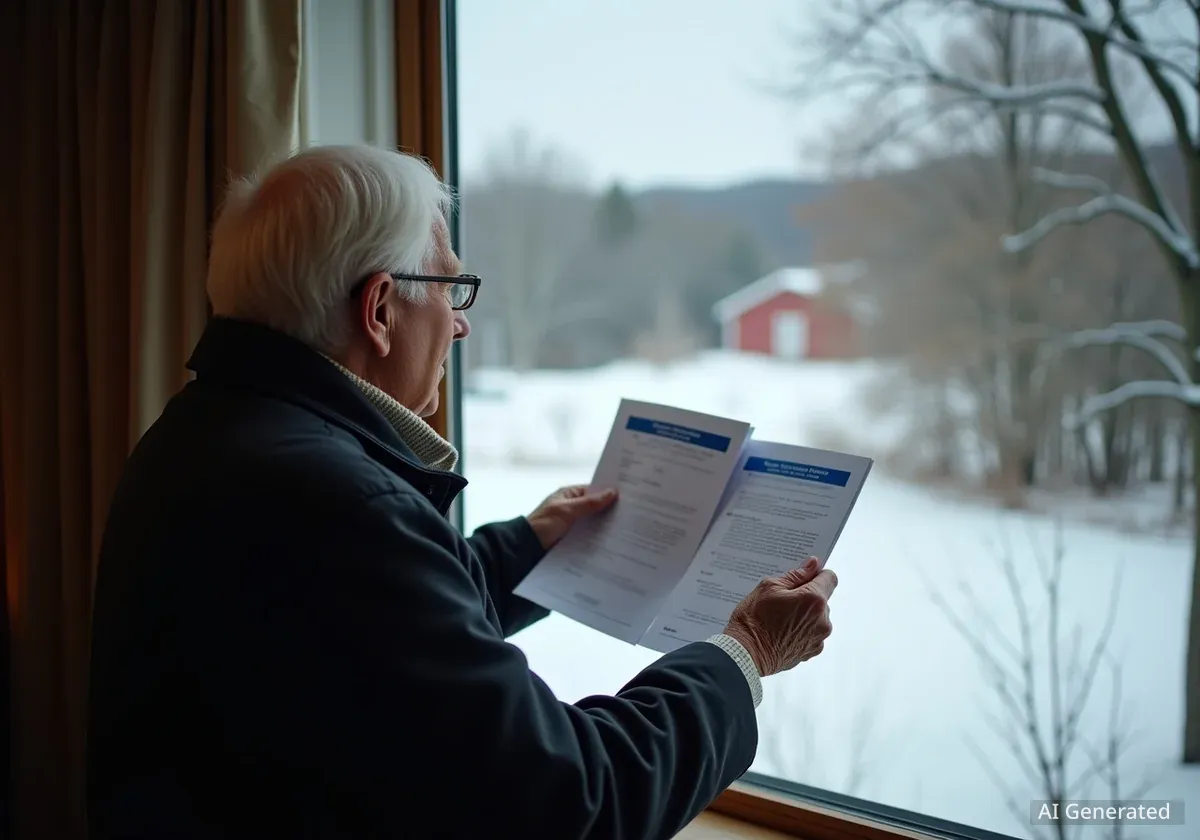Approximately 50,000 Vermont residents must find new health insurance coverage following the withdrawal of two major providers from the state's individual Medicare Advantage market. Blue Cross Blue Shield and UnitedHealth have announced they will no longer offer these plans to individuals and small businesses, prompting a significant shift in the state's healthcare landscape.
The timing of the exits places additional pressure on seniors and state resources, as the news comes just before the start of the annual Medicare open enrollment period. State agencies are now preparing for a surge in demand for assistance as affected residents navigate their options.
Key Takeaways
- An estimated 50,000 Vermonters are impacted by the withdrawal of two major Medicare Advantage plan providers.
- Blue Cross Blue Shield and UnitedHealth are exiting the individual and small business market in Vermont.
- The change forces thousands of seniors to find alternative coverage, such as Medigap or traditional Medicare.
- State health insurance programs are anticipating significant wait times due to high demand for enrollment assistance.
Two Major Insurers End Vermont Medicare Advantage Plans
The decision by Blue Cross Blue Shield and UnitedHealth to leave Vermont's individual Medicare Advantage market has created uncertainty for tens of thousands of residents. This change specifically affects individuals and small businesses who purchase their own coverage, not those covered by plans from large employers.
The departure of these two companies significantly reduces the number of available Medicare Advantage options in the state. Officials have confirmed that a plan from Humana remains available, but its coverage is limited and varies by location, meaning it is not a viable option for all affected residents.
Understanding Medicare Advantage
Medicare Advantage, also known as Part C, are plans offered by private companies approved by Medicare. These plans bundle Part A (Hospital Insurance), Part B (Medical Insurance), and often Part D (prescription drugs) into a single plan. Their withdrawal from a market can leave beneficiaries with the need to re-enroll in Original Medicare and purchase separate supplemental and prescription drug plans.
State Resources Strained by High Demand
With open enrollment beginning next week, state and local organizations are bracing for an influx of requests for help. The Vermont Association of Area Agencies on Aging is actively working to provide one-on-one counseling for displaced beneficiaries looking to enroll in alternative plans.
Sam Carleton, the director of the Vermont State Health Insurance Program (SHIP), has cautioned residents to expect delays. He stated that his organization has increased staffing but anticipates that the volume of inquiries will be difficult to manage.
"If you want to get help from your local SHIP office, understand that there will be a wait time, and unfortunately, due to demand, there will be folks we won’t be able to serve due to demand, and that’s statewide," said Carleton.
Carleton emphasized that while assistance is available, the sheer number of people needing guidance means that not everyone will receive immediate, personalized support. This highlights the scale of the challenge facing Vermont's senior population.
Exploring Alternative Coverage Options
For the 50,000 affected Vermonters, the primary alternatives are switching to Original Medicare and considering a supplemental plan, often called Medigap. These supplemental plans help cover out-of-pocket costs that Original Medicare does not, such as deductibles and coinsurance.
Carleton noted the financial implications of forgoing such coverage. He explained that without a supplemental plan or a prescription drug plan (Part D), beneficiaries could be responsible for 20% of their prescription drug costs, a significant financial burden for many.
Key Enrollment Deadlines
- December 7th: The general deadline for enrolling in a regular Medicare Part B plan during the open enrollment period.
- February 8th: A special enrollment period deadline for individuals who received formal letters from their insurance provider about their plan being discontinued.
How to Find a New Plan
Officials are directing residents to several resources for comparing and enrolling in new plans. These services are managed at the federal level and are not impacted by any potential U.S. government shutdowns.
- Online Resources: The official Medicare website, Medicare.gov, offers tools to compare different Medigap and prescription drug plans available in a specific area.
- Phone Support: Beneficiaries can call 1-800-MEDICARE for direct assistance from federal representatives.
- State Guidance: The Vermont Department of Financial Regulation has also compiled helpful links and information on its website to guide residents through the process.
Limited Choices Remain in the Market
While the market has shrunk considerably, there is still one Medicare Advantage provider, Humana, operating in parts of Vermont. However, viewers of WCAX have reported that they have been unable to find alternative options in their specific locations, underscoring the limited reach of the remaining plan.
The current situation forces many Vermont seniors to transition from a single, bundled Medicare Advantage plan to a multi-part system involving Original Medicare, a Medigap policy, and a Part D prescription drug plan. This transition requires careful research to ensure continuous and adequate health coverage.
The challenge for state agencies and beneficiaries alike will be navigating this complex process within the established enrollment deadlines to avoid any gaps in healthcare access or unexpected medical expenses.





